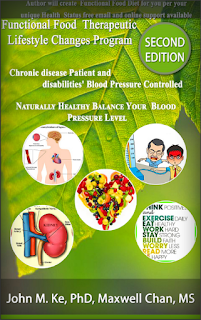How to choose right treatment to heal chronic constipation
It is indeed surprising that as a common condition found in
at least one-quarter of patients, chronic
constipation is treated in a wide variety of ways, with relatively little
evidence-based data, especially regarding dietary fiber, fluids, and exercise.
The Facts are that
most chronic constipation’s causes are not gastrointestinal (GI) tract itself
problems, however, most doctor and constipation prone to abuse the gastrointestinal
(GI) tract to get Quick-Relief, and
make more and more Colorectal Cancer patients come out.

Constipation not a sickness, but kind of digestion related
metabolic status, which may be complicated mixed problems connected to liver,
kidney, and spleen functions. Constipation is not good to Body Health Status
for sure; however, it is somewhat Quasi-stable digestion related metabolic
status per Individual’s specific health situation. Human being body itself is
the best doctor for human being’s health issue. It could be meaningless try to
let a stroke survivor or an aged people’s bowel movement to reach regular
healthy young man’s level. To heal, to treat or to lower it with convention
medicine may not be the best solution to handle bowel movement, the best
solution can only be found per specific individual health situation. the way
how to deal with constipation in very well balanced way is important to some of
patients under special health situation. Don’t mention possible side-effects,
by Complementary and Integrative Health, Simply to apply laxative to
constipation patient is like whipping a tired horse to make it exhausted, the best
solution to deal with Constipation
should be with balanced holistic solution—Complementary and Integrative
Medicine, i.e. Natural Heal Constipation
with Functional Food TLC Program.
Its medical concept is fully complying with nowadays Common
Natural health concept: Chronic constipation should be managed according to its
etiology and guided by the best evidence-based treatment. Visit here to get more detail information
More Reference :
1. Like headaches and colds, almost everyone will experience a
bout of constipation at some point. For most, the episode is brief and won’t
require medical treatment. But if you have problems for three months or longer,
doctors start to get concerned. Having fewer than three bowel movements per
week, excessive straining, a sense of not being finished, or having hard, lumpy
stools are signals you may have constipation. At any one time, some 43 million
adults in the U.S. suffer from the condition. Women are twice as likely as men
to experience constipation, while seniors who take multiple medications are
also at high risk.
If you are constipated, it’s worth eating more fiber-rich
foods such as vegetables, fruits, whole grains, and nuts. You can also drink
more fluids and make sure you exercise regularly. Fiber supplements are another
option to consider. Our analysis found that those containing psyllium are best.
If those strategies don’t help and your constipation
persists for two weeks or longer, you may need a medication to relieve your
symptoms. A variety is available in both non-prescription
and prescription options. Most people will get the help they need from
inexpensive, non-prescription drugs, such as stool softeners and laxatives.
"I imagine death to be just like this. I had been
taking medicine for an inner ear infection which had me constipated for 5 days
and I was experiencing pain from constipation.
I didn't realize there was different
kinds of laxatives, which is on me for sure! I took 2 pills at 7:30am because
that's when I got off work and didn't have work til 4pm that day. They kicked
in about 1030am and I was on and off the toilet until I had work. Sweating,
burning and watery diarrhea, with cramps 81702037x worse than period cramps. I
was okay for a little bit and then at 9pm the pain came back with a vengeance.
Still going... cramping, hot and cold & pooping. I started crying I'm in so
much pain. NEVER again. I'd rather be constipated!!"
2. Chronic Constipation: An Evidence-Based Review
http://www.jabfm.org/content/24/4/436.long
http://www.jabfm.org/content/24/4/436.long
By: Lawrence Leung, MBBChir, FRACGP, FRCGP, Taylor Riutta,
MD, Jyoti Kotecha, MPA, MRSC and Walter Rosser, MD, MRCGP, FCFP
Results: The standard advice of increasing dietary fibers,
fluids, and exercise for relieving chronic constipation will only benefit
patients with true deficiency. Biofeedback works best for constipation caused
by pelvic floor dysfunction. Pharmacological agents increase bulk or water
content in the bowel lumen or aim to stimulate bowel movements. Novel classes
of compounds have emerged for treating chronic constipation, with promising
clinical trial data. Finally, the link between senna abuse and colon cancer
remains unsupported.
Conclusions: Chronic constipation should be managed
according to its etiology and guided by the best evidence-based treatment.

